Whether you're clearing out your wardrobe or starting a proper business, knowing where to sell designer bags can make a huge difference in how much you can earn and how easy the selling process can be. Check out our top picks.
Key takeaways
- Full-service platforms like The RealReal charge higher commissions (up to 40%) but handle authentication, photography, and pricing for you.
- Specialized luxury marketplaces attract serious buyers willing to pay more, while general platforms offer broader reach but more competition.
- Choose between quick buyout offers for immediate cash or consignment options that typically yield higher returns but take longer.
Whether you're clearing out your wardrobe or starting a proper business, knowing where to sell designer bags can make a huge difference when it comes to how much you can earn and how easy the selling process is.
Some platforms offer quick payouts, while others attract buyers willing to pay more. Knowing the best place to sell is important for your ecommerce success. Looking for good options to set up an online store?
Keep reading and learn the best places to sell designer bags.
Why you should sell designer bags online
Selling designer bags can be a lucrative business opportunity, offering several advantages for both new and experienced entrepreneurs, such as:
High profit margins
Designer bags are known for their high prices with many people willing to pay a lot for exclusive brands. Depending on the quantity and quality of your stock—and the payout methods the marketplace you choose have—your profits can be higher than other categories.
Strong demand for luxury goods
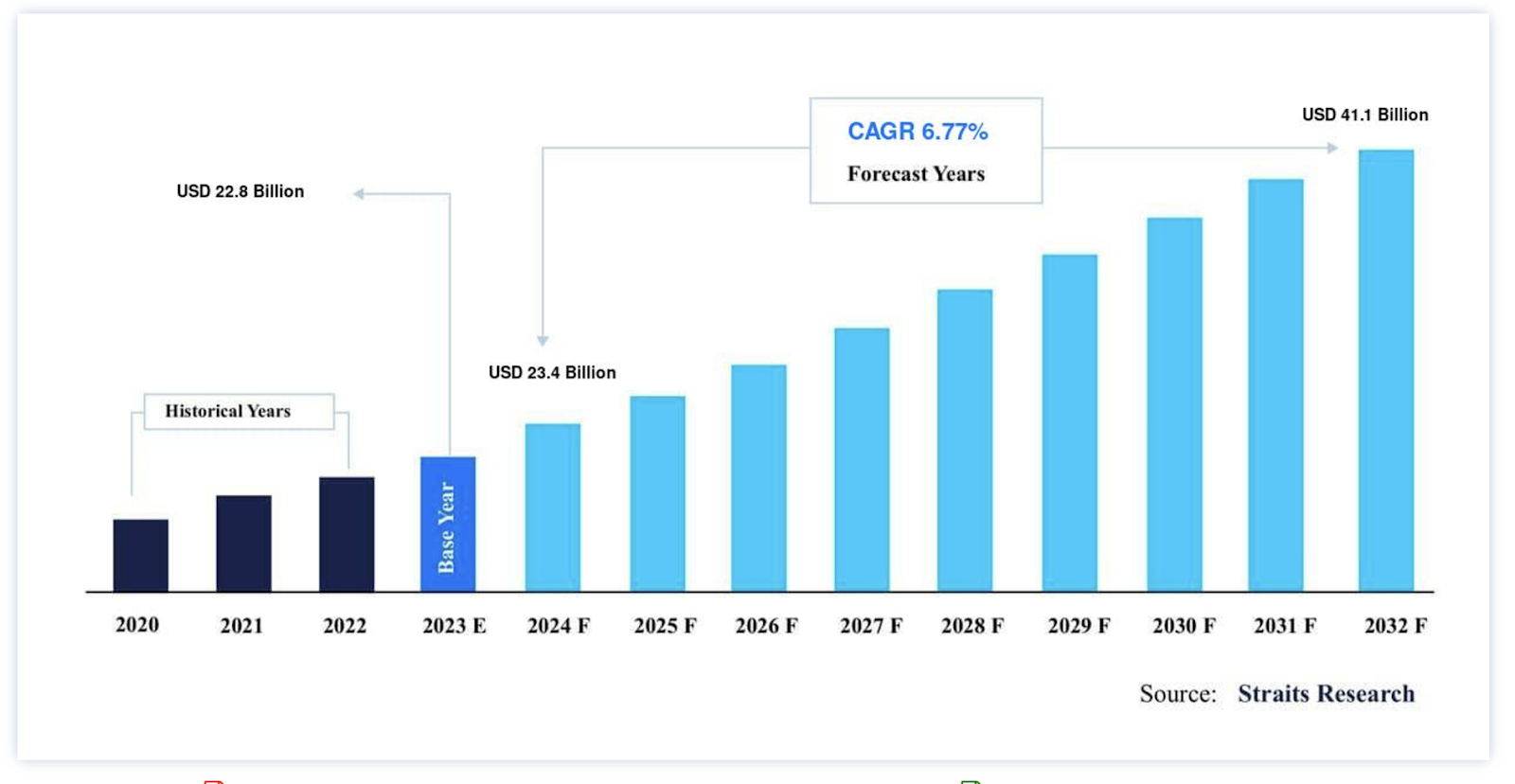
For fashion enthusiasts, designer bags are status symbols and this alone makes these items highly desirable in the fashion industry. With an online store, you can reach luxury shoppers looking for the best and most exclusive items across the world.
You can also target niche markets within the luxury goods space, like specific brands, vintage designer bags, or limited-edition collections, differentiating your business from competitors while catering particular, but still high-demanded, customer preferences.
Secondhand and resale appeal
Fashion trends may change, but designer bags often hold their value over time.
Platforms like The RealReal and Poshmark specilize in second-hand goods making it easier for people to buy and resell designer bags.
Combine this with consumers being increasingly open to buying secondhand luxury products, and you have a thriving market where you can diversify your offerings with both new and pre-owned designer bags.
Wondering where to sell designer bags?
Here are the best places to sell designer bags online:
1. eBay
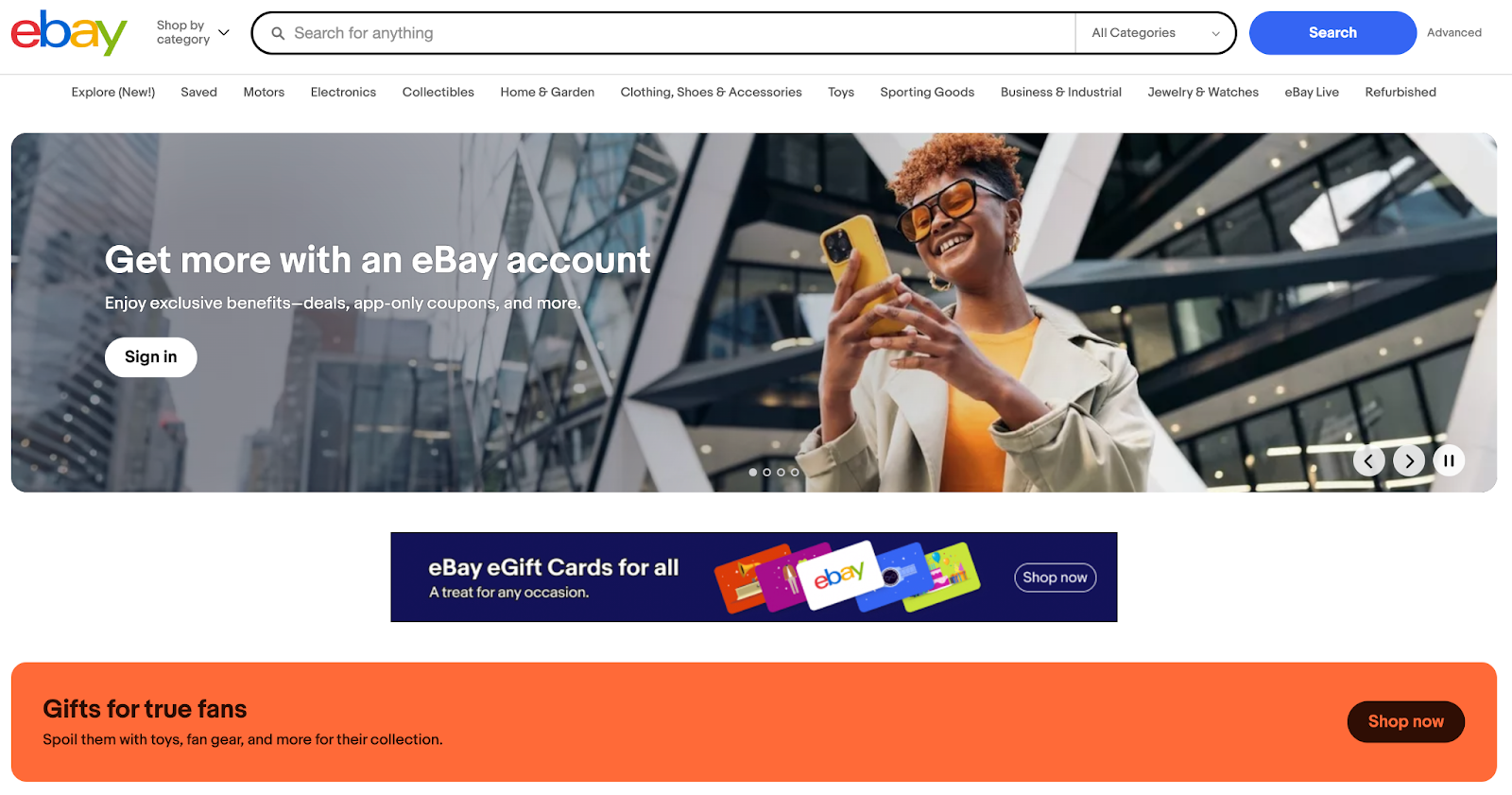
With millions of active users, eBay is one of the largest and most well-known marketplaces in the world. It provides a broad audience for selling or reselling designer bags, allowing sellers to reach both local and international buyers. eBay’s auction-style listings are particularly appealing for luxury items, as they enable competitive bidding, which can lead to higher prices for rare or in-demand bags.
eBay is a very user-friendly marketplace, however its “openness” as a platform means that sellers face significant competition on eBay, not only from other independent sellers but also from retailers and businesses.
Pros:
- Global reach with millions of potential buyers.
- Auction format can lead to higher prices for in-demand bags.
- Built-in tools like “Authenticity Guarantee” for luxury items.
Cons:
- High competition, potentially driving prices down.
- It’s not particularly focused on luxury or designer goods.
Pricing: Final value fee of 15% if the total amount of the sale is $2,000 or less, calculated per item. Or 9% if the total amount of the sale is over $2,000, calculated per item.
2. The RealReal
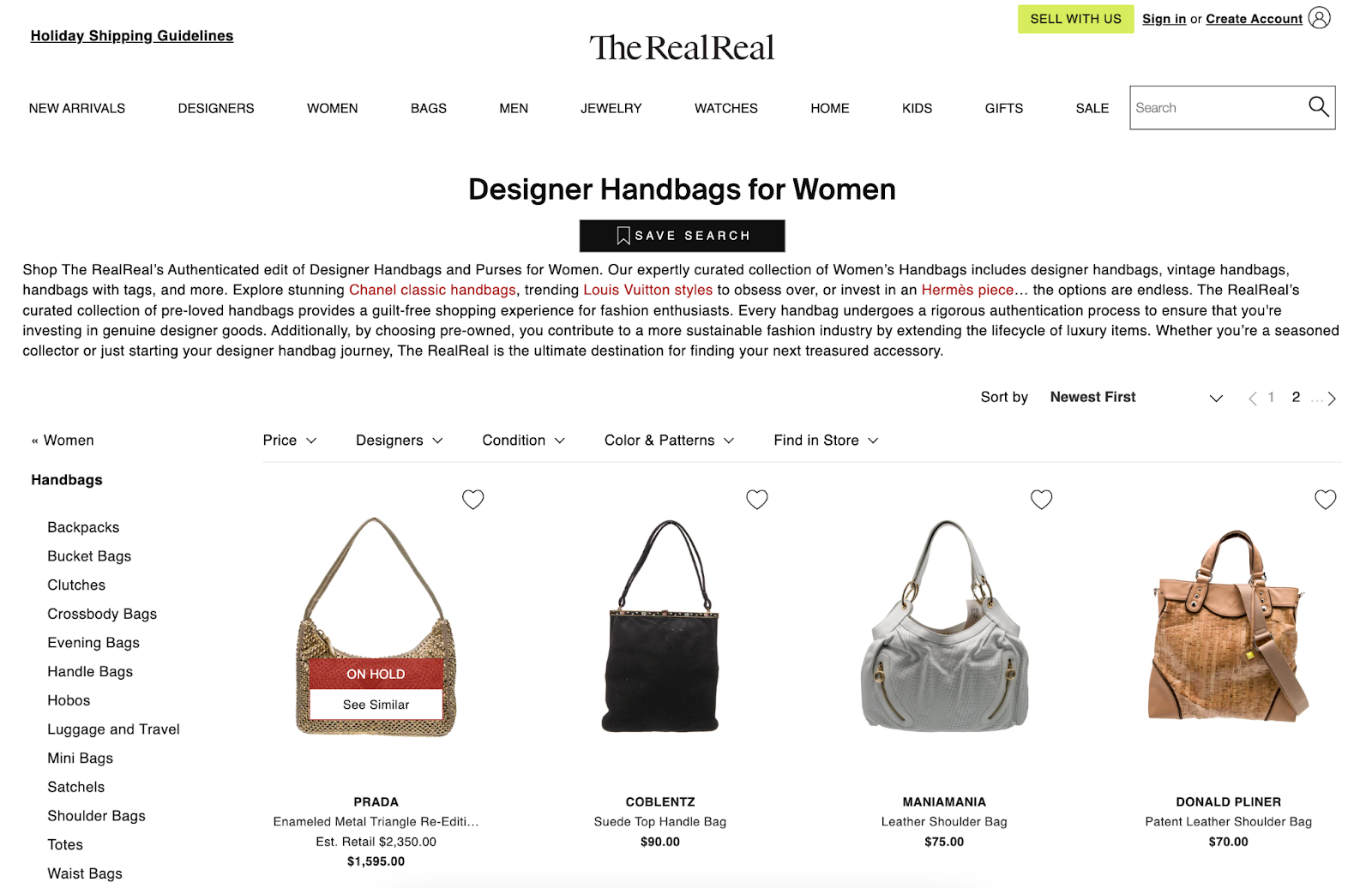
The RealReal is a luxury consignment platform that focuses on high-end designer items, making it a trusted and exclusive space for selling designer bags. One interesting aspect of RealReal is that the platform handles the entire process for sellers, including item authentication, photography, pricing, and customer service.
This hands-off approach to selling luxury items makes the marketplace very good for sellers who value convenience and trust. Selling on The RealReal also means you’ll be paid in the form of commissions, with a structure that can be a bit harsh for new sellers.
Pros:
- Full-service selling, from authentication and product listing, to customer service.
- Trusted by buyers for luxury items, leading to higher sale prices.
- Authenticity guarantee builds buyer confidence.
Cons:
- High commission rates.
- Sellers have limited control over pricing.
- Can take longer to sell compared to other platforms.
Pricing: Commissions start at 40%, reduced to 15% for high-volume consignors.
3. Vestiaire Collective
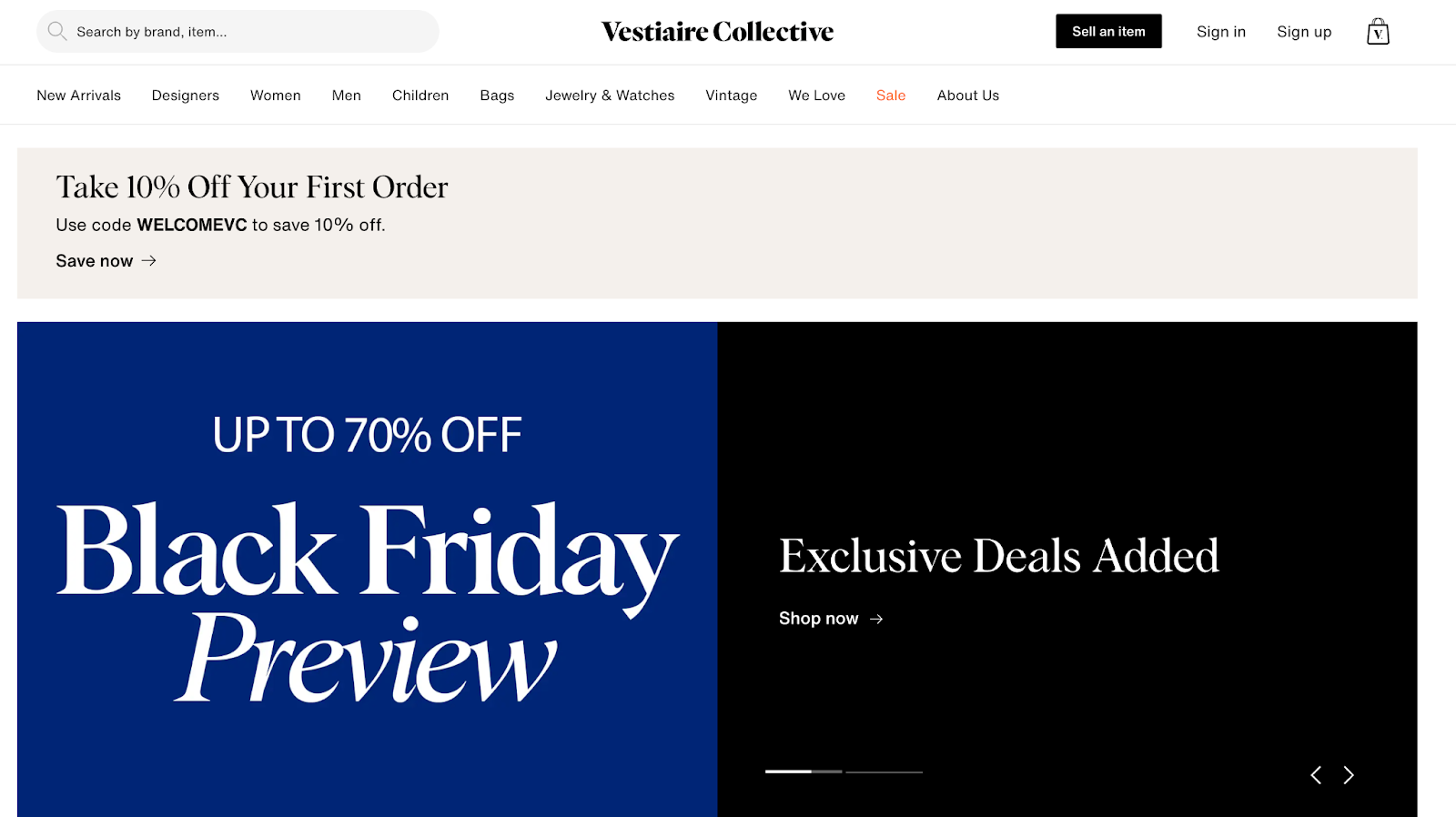
Known for its focus on pre-owned luxury fashion, the Vestiaire Collective offers a strong commitment to sustainability, which resonates with buyers looking to invest in second-hand designer bags. It has a robust authentication process, ensuring that all items are verified before they reach buyers.
Also, sellers in Vestiaire Collective are given more control over their pricing, but the platform encourages sellers to accept offers from buyers, which could lead to selling at lower prices than anticipated.
Pros:
- Strong focus on sustainability and pre-owned luxury.
- Strict authentication process builds trust with buyers.
- Sellers have control over pricing.
Cons:
- Encouragement to accept lower offers may affect profitability.
- Seller is responsible for shipping.
Pricing: Fees vary depending on currency and location.
4. Rebag
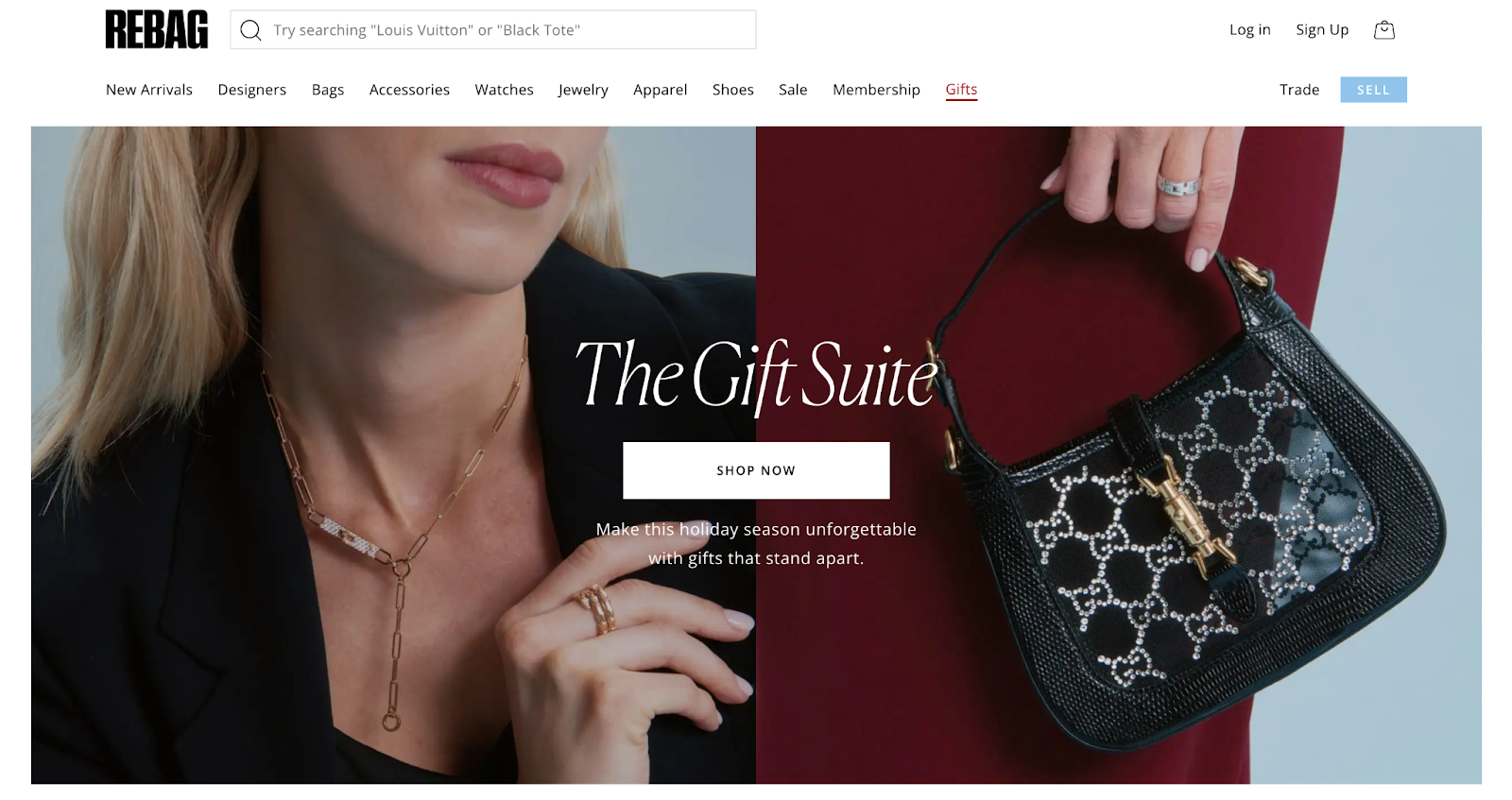
Rebag is a specialized marketplace for designer bags that offers consignment, buyout, and trade selling options.
The consignment method benefits from pre-approved payouts, competitive commission rates and quick payments. Buyout easily self-generates an upfront offer that allows sellers to get paid outright. The trading option allows buy and sell in one transaction, earning up to 10% more and only paying the difference.
Rebag’s buyout offers tend to be lower than what you might get through consignment or selling on other platforms, as the company needs to resell the items at a profit. However, Rebag’s streamlined process and targeted audience make it a strong choice for sellers who want convenience and trustworthiness in the designer handbag market.
Pros:
- Upfront pricing offers quick and easy cash-out options.
- Specializes in designer bags, attracting a focused buyer base.
- Authenticity guarantee ensures buyer confidence.
Cons:
- Buyout offers may be lower than what sellers can get elsewhere.
- Limited control over pricing when opting for direct sales.
Pricing: Rebag takes up to 25% in commissions, which may vary depending on the method you choose.
5. Fashionphile
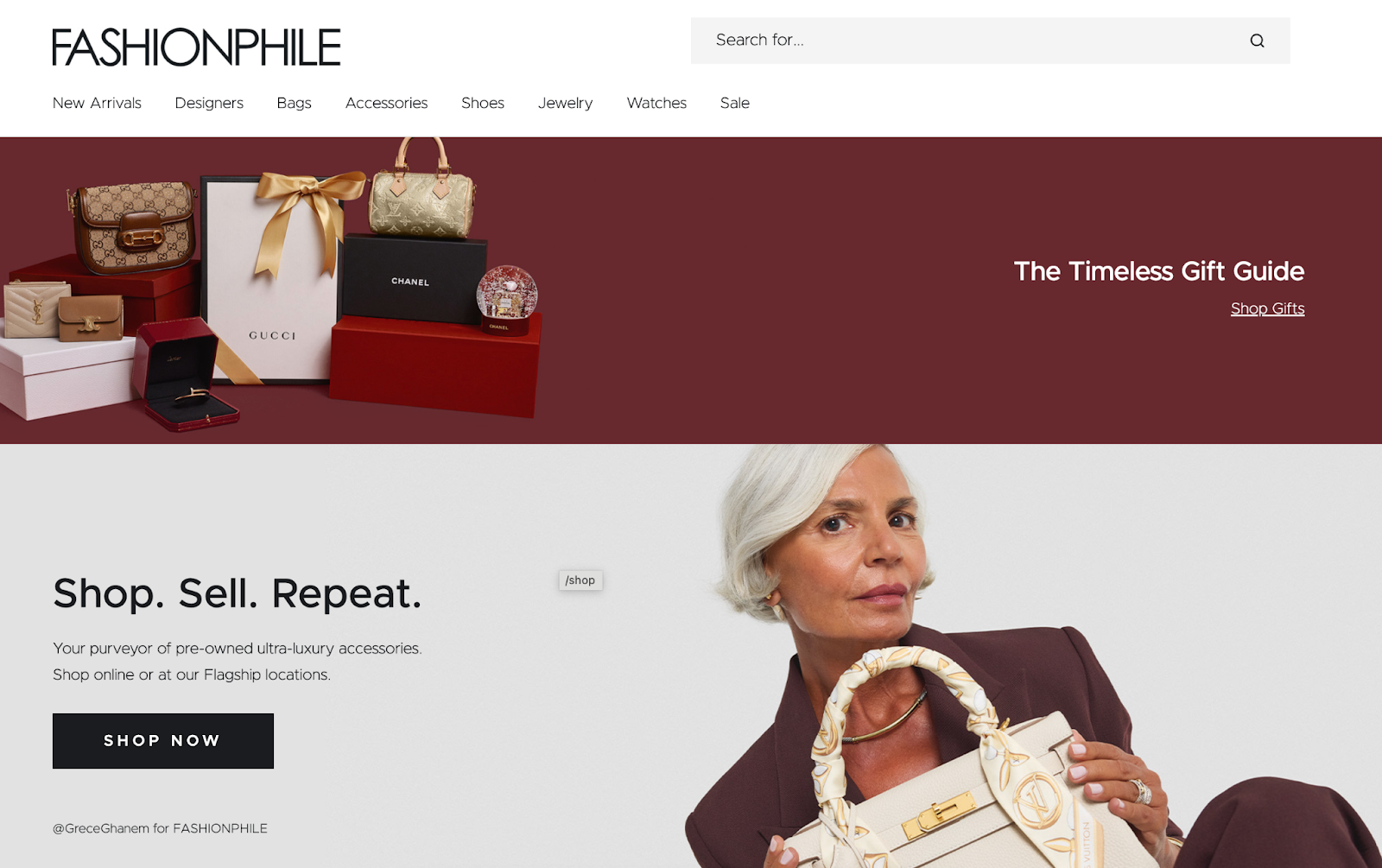
Fashionphile is a trusted luxury resale platform known for specializing in high-end handbags and accessories. It caters to an audience looking specifically for luxury brands, making it an excellent platform for selling designer bags.
One downside to Fashionphile is that the buyout price you receive is often lower than what you might get on consignment or selling directly to buyers on other platforms. Additionally, the commission for consignors can range from 15% to 30%, which might be higher than some sellers are comfortable with.
Pros:
- Quick and easy buyout option for fast sales.
- Focuses on luxury items, ensuring a targeted audience.
- Trusted authentication process, enhancing buyer confidence.
Cons:
- Buyout offers may be lower than selling directly to buyers.
- High commission rates, up to 30% for consignments.
- Sellers have limited control over pricing when opting for direct sales.
Pricing: Fashionphile takes 15% to 30% commission depending on the selling method.
6. Poshmark
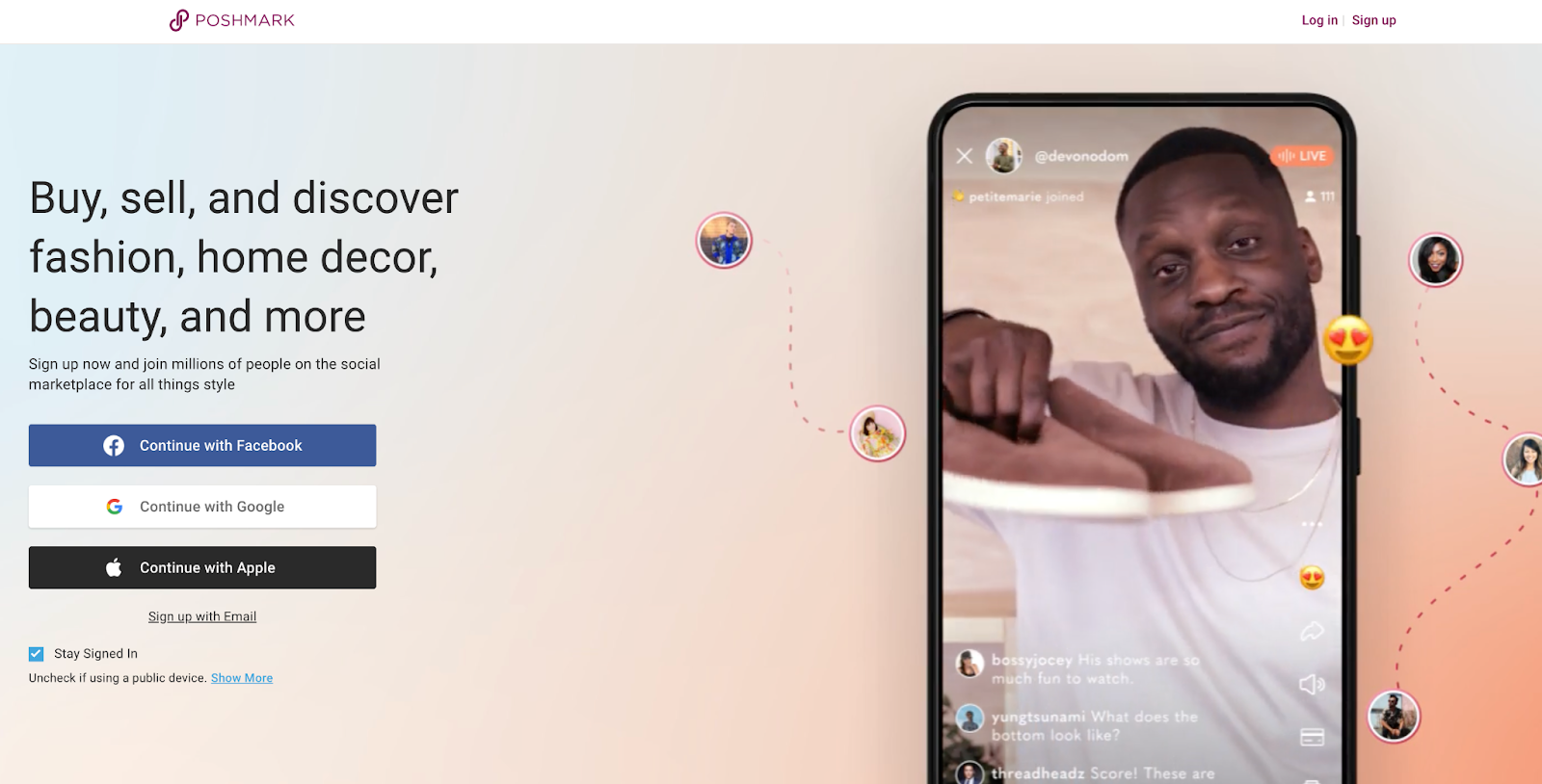
Poshmark is a popular platform for both new and used fashion items operating as a social marketplace, allowing sellers to engage directly with buyers through comments and direct offers, which can build a sense of community and increase the chances of a sale.
However, Poshmark doesn’t specialize in luxury goods, which means the audience for high-end designer bags may not be as large as on the other platforms on this list. As a seller, you can leverage a broad, very interactive audience on Poshmark, but consider the extra work needed to stand out when selling on this marketplace.
Pros:
- Simple and cheap flat fee structure.
- Offer options for prepaid shipping labels, making shipping processes easy.
- Engaged fashion-savvy community.
Cons:
- Not exclusively for luxury items, which can reduce exposure for designer bags.
- Social interaction is required for success, which can be time-consuming for unprepared sellers.
Pricing: Seller fee is $1, $2 or $3 based on the order price plus 5.99% of the order total.
7. Depop
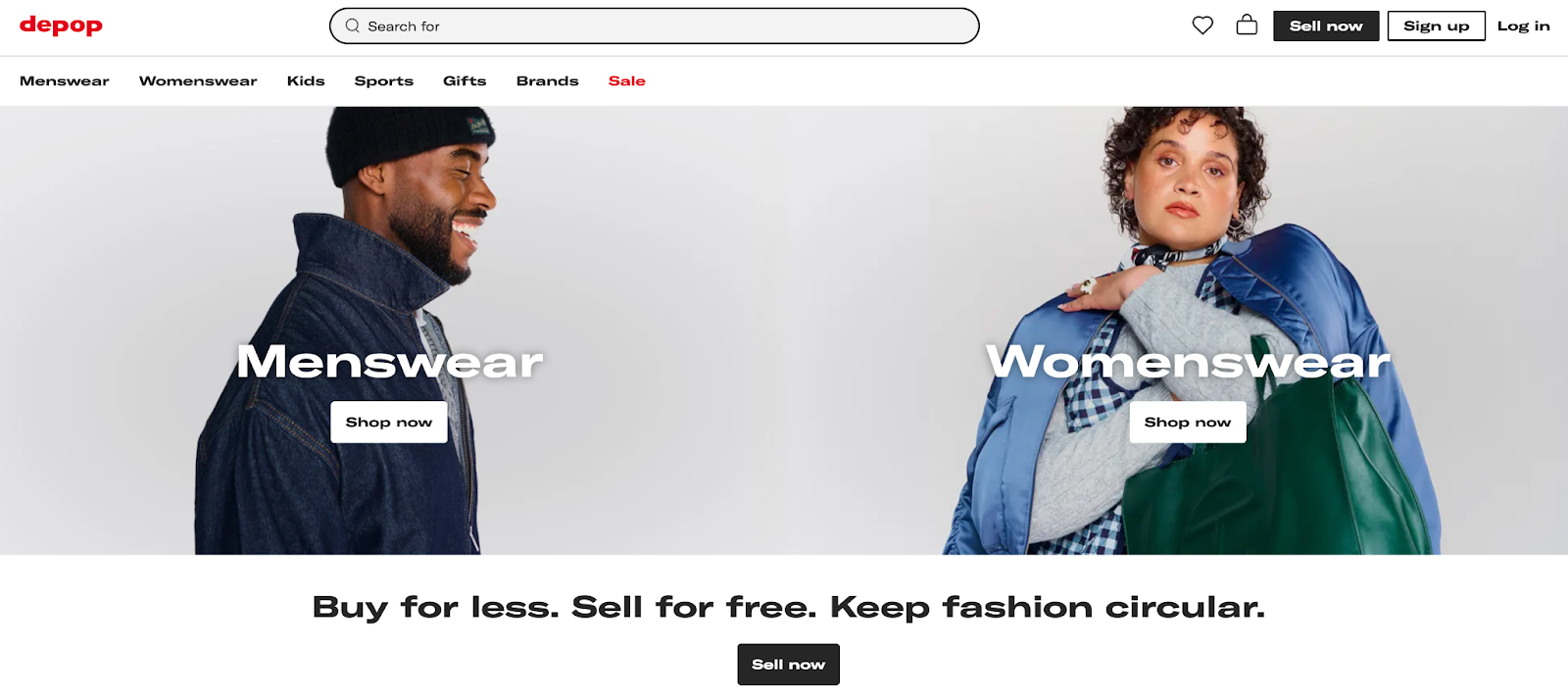
Combining fashion and social media, Depop is a marketplace known for its trendy, social media-focused community that allows sellers to interact with buyers and promote their listings through photos and personal styling.
One limitation of Depop is that it’s not specifically designed for luxury goods, so the audience may not be as interested in high-end designer bags compared to platforms like The RealReal or Fashionphile. Despite that, it’s a great platform for showcasing items and convincing buyers to get the product based on interaction and social proof.
Pros:
- Low commission rate compared to other platforms.
- Simple, easy-to-use interface.
Cons:
- Not luxury-focused, which may affect buyer interest in high-end bags.
- Smaller buyer pool for designer items.
Pricing: 10% commission on all sales, plus PayPal fees.
8. StockX
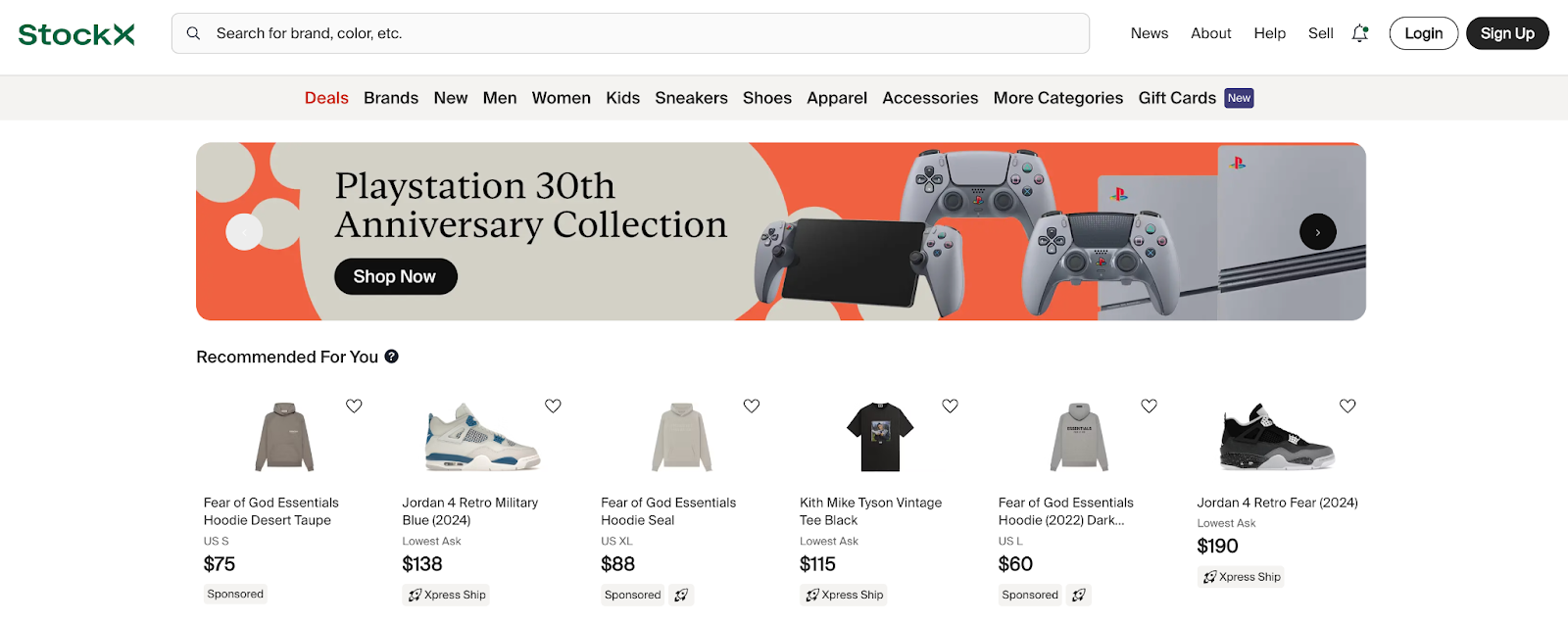
Primarily focusing on selling and reselling sneakers, StockX has expanded into other luxury categories, including designer handbags. The platform operates on a bid-ask system, similar to a stock market, where buyers place bids and sellers can either accept them or set their own asking price.
A unique approach that can lead to competitive prices for designer bags. Despite that, StockX’s luxury handbag section is still growing, so it may not offer the same reach for handbags as more established platforms.
Pros:
- Unique bid-ask pricing model.
- Authenticity guarantee on all items.
- Competitive prices for in-demand bags.
Cons:
- Still building its presence in the designer handbag space.
Pricing: 3% seller fee, which increases for lower-volume sellers.
9. myGemma
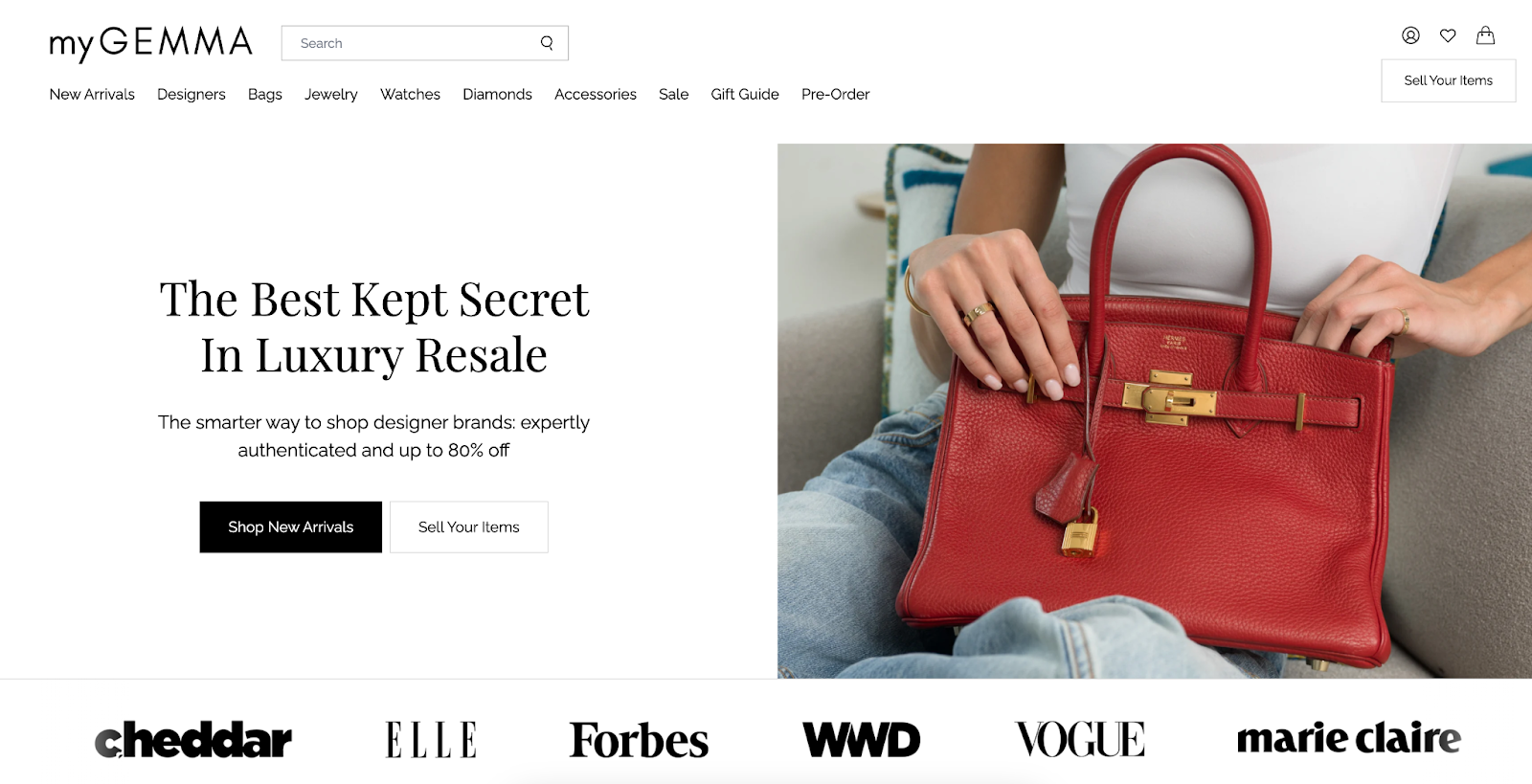
Considered “the best kept secret in luxury resale” (not only by the platform itself but by consumers as well) myGemma is a luxury resale platform that prides itself on providing competitive prices for luxury items with a strong focus on authentication, building a sense of trust between buyers and sellers.
It’s a very niche platform with a loyal base of users, not little reach if compared to other bigger marketplaces.
Pros:
- Strong focus on luxury and high-end items.
- Authentication ensures trust among buyers and sellers.
Cons:
- Limited to luxury-focused audiences.
- Lower exposure compared to broader marketplaces.
Pricing: Commission rates can vary but typically range from 5% to 20% depending on the item’s value and the selling method.
10. The Luxury Closet
Based in the Middle East, The Luxury Closet is a marketplace that specializes in buying and selling luxury items, including designer handbags, clothing, and accessories. It’s particularly popular for high-end brands like Chanel, Louis Vuitton, and Hermes.
The platform offers a consignment model where sellers send in their items to be authenticated, listed, and sold. This makes it a trusted platform for selling genuine designer bags, however, commission rates can be hard to deal with in the beginning.
Pros:
- Specializes in luxury items with a focus on high-end brands.
- Strong authentication process builds trust with buyers.
- Global reach
Cons:
- High commission rates, up to 40%.
- Smaller, more niche audience compared to larger marketplaces.
Pricing: Commission rates range from 15% to 40%, depending on the item’s value.
How to sell designer bags online
Despite the popularity in the market, designer bags are still items for a specific audience, so selling designer bags online requires a combination of research, planning, and strategic execution.
To properly start your designer bags business, some of the steps you need to take are:
Research your market
Before even starting your business, it’s essential to understand the designer bag market and your potential customers. Conduct market research to identify points like:
- Popular designer brands: Brands like Chanel, Gucci, Louis Vuitton.
- Customer demand: What type of brands does the audience prefer more, or what's the situation on new vs. pre-owned bags preference?
- Best places to do business: Marketplaces like The RealReal, Poshmark, eBay.
- Price trends and profit margins: Whether to focus on a specific niche like luxury bags or cater to a broader audience.
Choose your product source
Sourcing designer bags can be done in several ways:
- Wholesalers: Partner with trusted wholesalers who offer authentic designer bags at lower prices. Many wholesalers require proof of business, so be prepared to show your legal credentials.
- Consignment: You can also start by selling pre-owned bags on consignment, where sellers provide the inventory, and you earn a percentage of the sale.
- Direct from Brands: If you have the budget, you can consider establishing partnerships directly with designer brands. However, this often requires a significant upfront investment.
- Vintage and Secondhand Markets: Purchasing gently used designer bags from secondhand markets or estate sales can provide high-margin opportunities, especially for rare or collectible items.
Set up your online store
You can either sell through product listings on marketplaces like eBay, Poshmark, or Depop – or any of the places mentioned above – or you can create your own website.
As designer bags are high-value items it’s important to study the overall market price of these items so that your own prices remain competitive, but also capable of generating profits.
Leverage social media marketing
Social media is a powerful tool for marketing your products, and platforms like Instagram and TikTok – which are highly visual and fashion-centric apps – are perfect to generate organic traffic to your business. You can also use influencer marketing, partnering with fashion influencers who can point their audience to your store by showcasing your products on a day-to-day basis.
Scale your business
If you want a successful business for the long run, scalability is what you need to focus on, once your business is already established. Start by constantly expanding your product range, adding more designer brands and different styles of bags. Also, remember that you don't have to sell in just one place. Having product listings on different marketplaces will ensure that you reach different audiences.
Of course, you’ll be busier with management, but this strategy guarantees that your business doesn’t stagnate and gain more customers at a constant level.
Learn how to sell anything with Whop
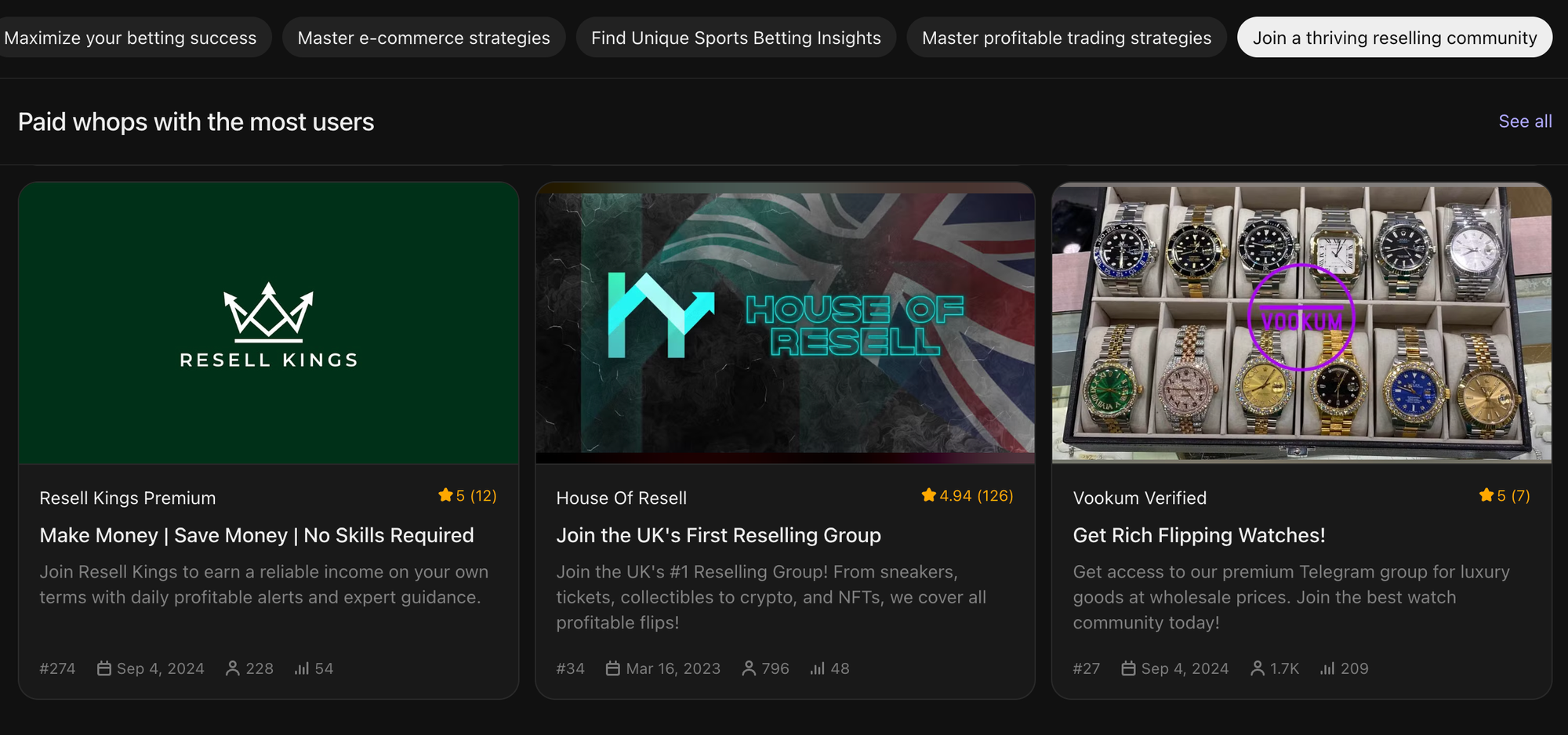
Whether you want to sell designer bags, clothes, shoes, or physical products like online courses, eBooks, and more, Whop can help you out.
Whop is home to hundreds of online courses and communities dedicated to all areas of ecommerce, such as online sales, dropshipping, reselling, and even business tips.
All you need to do is access and choose the community that’s right for you. It takes less than 10 minutes to sign up and start your journey to success.
Best places to sell designer bags FAQs
The frequently asked questions about the best places to sell designer bags.
What’s the best platform to sell designer bags?
The best platform depends on your priorities. If you're looking for a fast payout, platforms like Rebag or myGemma offer buyout options. For higher potential earnings, consignment platforms are ideal as they attract high-end buyers willing to pay more for luxury items.
Can I sell damaged or well-used designer bags?
Yes, many platforms accept gently used or even damaged bags, though the payout will be lower. Platforms like The RealReal accept items in varying conditions, but be honest in your listing to ensure a smooth transaction.
Can I sell designer bags internationally?
Yes, many platforms, such as Vestiaire Collective and The Luxury Closet, cater to international buyers and sellers. Keep in mind that shipping costs and customs fees may apply when selling to overseas buyers.
Why should you trust us?
An expert content writer at Whop, Joe Niehaus brings years of expertise in running affiliate programs for ecommerce brands. His knowledge has also been highlighted in renowned outlets such as Business Insider, GQ, and Travel + Leisure, where he’s contributed insights on ecommerce in general.



